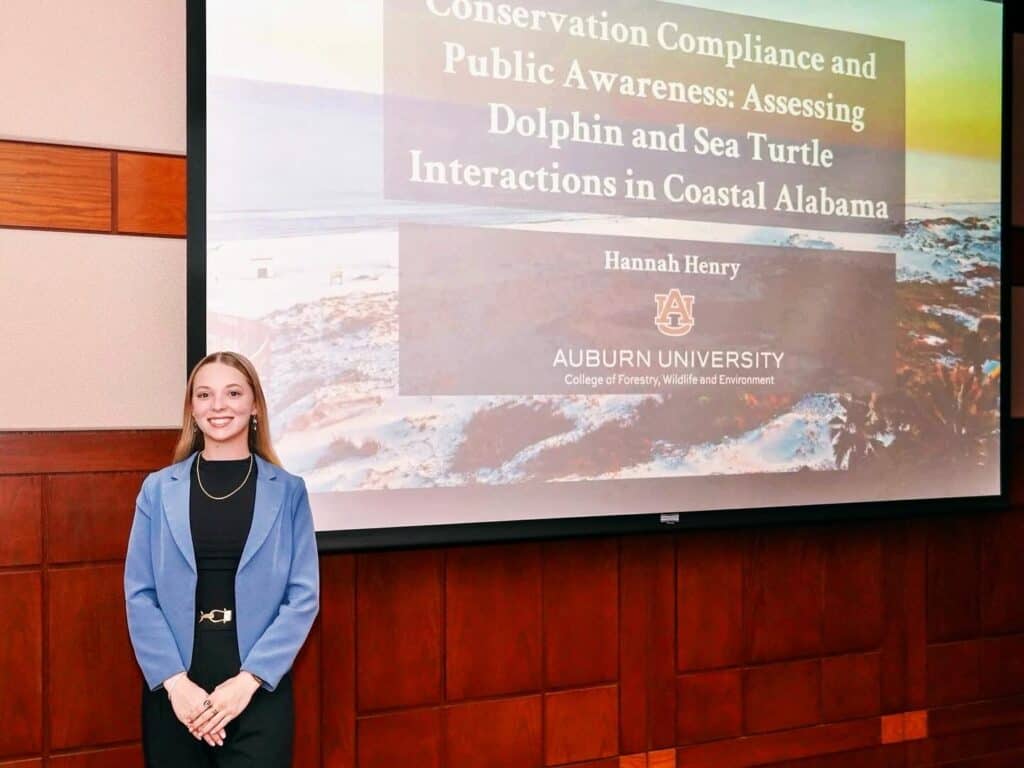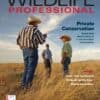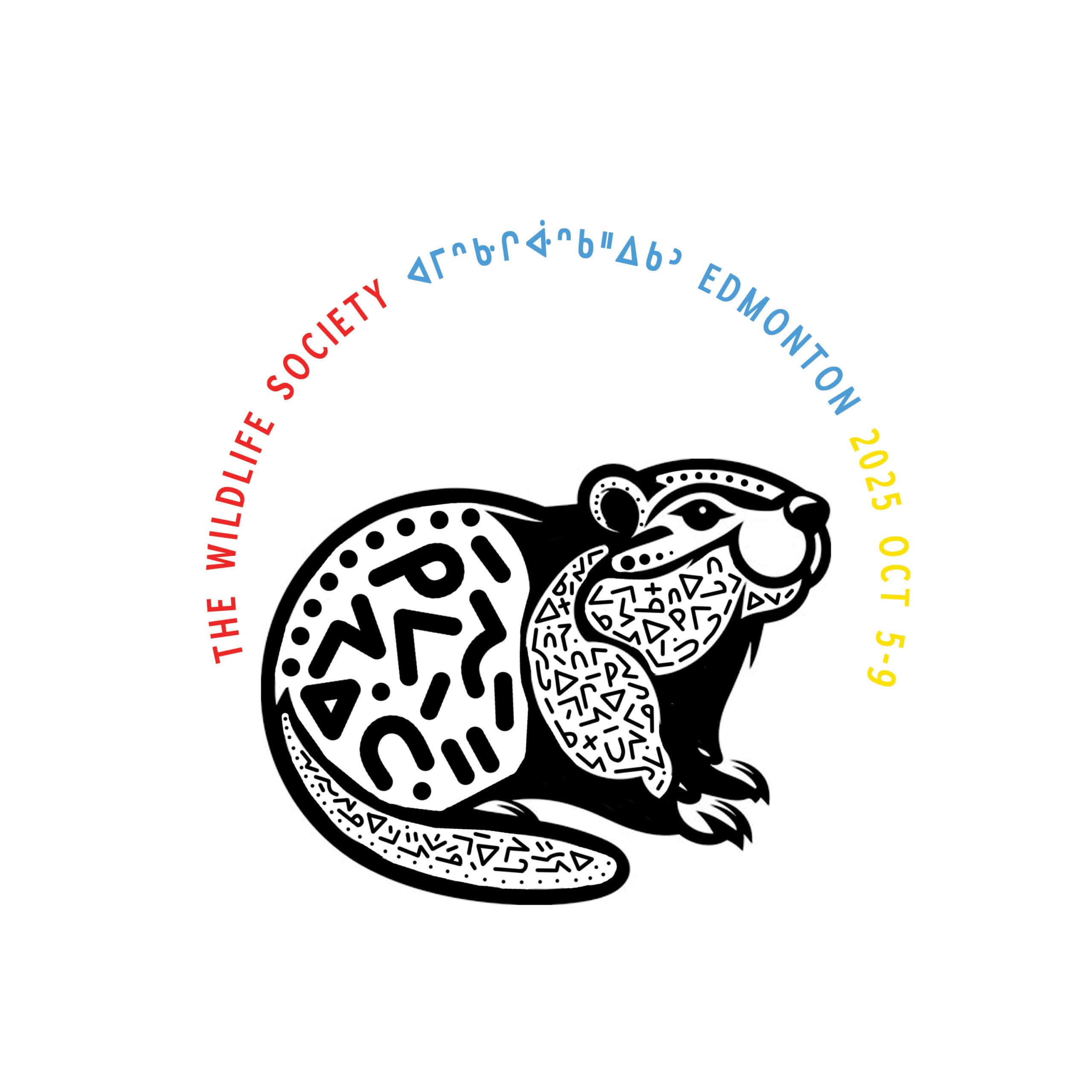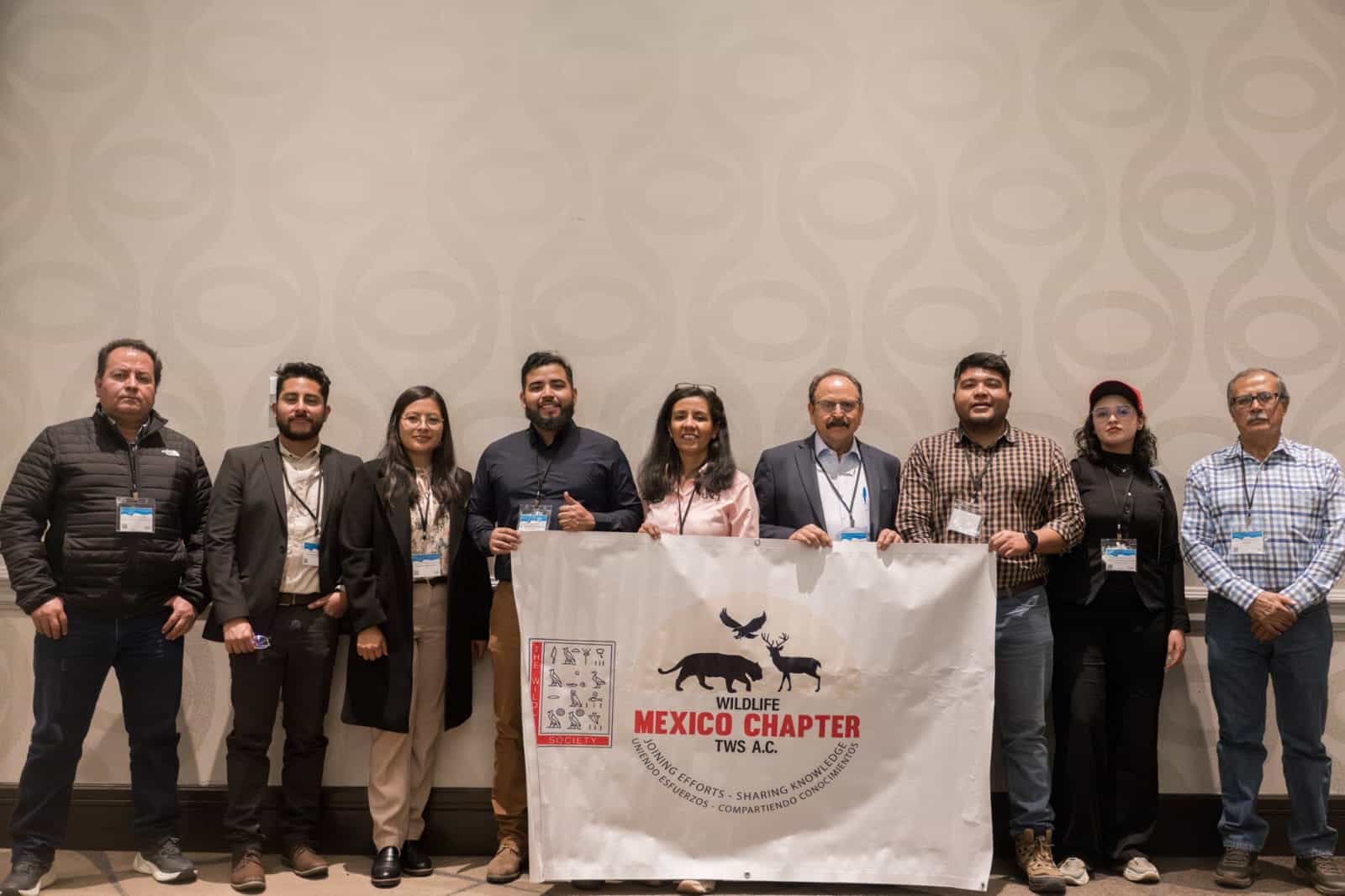Share this article
Hannah Henry Receives Graduate Fellowship in Wildlife Policy
Doctoral student Hannah Henry will receive a second years of research funding through the Ronald F. Labisky Graduate Fellowship in Wildlife Policy
Hannah Henry, a TWS student member and doctoral student from the University of North Carolina-Chapel Hill, has received a second year of funding through the Ronald F. Labisky Graduate Fellowship for her graduate work in wildlife policy.
“The goals of the Ronald F. Labisky Graduate Fellowship resonate deeply with my personal and professional aspirations,” Henry said in a nomination narrative for the fellowship.
She added that throughout the last year while working to complete her Master of Science degree at Auburn University, the support of the fellowship has allowed her to advance her marine wildlife policy research goals in the Gulf of Mexico. She specifically focuses her efforts on reducing human-wildlife conflict, primarily involving dolphins and sea turtles.
“I have been managing a scientific grant aimed at studying the perceptions of commercial anglers, wildlife tourism operators and coastal tourists regarding marine conservation policies, including key legislation such as the Endangered Species Act, Marine Mammal Protection Act and Marine Life Viewing Guidelines,” Henry said. “Through interdisciplinary collaboration, evidence-based decision-making and effective communication, I aim to influence positive change in the management and protection of our wildlife resources.”
To expand her understanding of international wildlife policy, Henry participated in the Student Workshop for International Coastal and Marine Management (SWIMM) program facilitated by the Harte Research Institute for Gulf of Mexico Studies (HRI) at Texas A&M University-Corpus Christi in 2023. The program allows graduate students from the U.S., Mexico and Cuba to learn more about coastal and marine wildlife and fisheries management practices across the Gulf. Instructors mainly communicate in Spanish during this workshop.
“What notably caught our attention in Hannah’s application, beyond her strong foundation in basic ecology and science, was her interest and experience that mixed her natural science background with policy, social science and economics,” said Mark Besonen, HRI Director for International Programs, in a nomination letter. “This is exactly the perspective we desire for SWIMM program participants, and indeed, the cornerstone of HRI’s mission.”

Hannah’s PhD work will focus on the Outer Banks islands off the coast of North Carolina. She will work alongside a number of wildlife agencies, including the U.S. Fish and Wildlife Service and the National Park Service, among others, to evaluate the impacts of wildlife management strategies across different climate scenarios. She will also work alongside The Nature Conservancy on a long-term ecological research site to model barrier island landform evolution.
“My research objective will be to harmonize the diverse needs and priorities of each agency, crafting management actions that seamlessly align with their distinct policies and objectives,” Henry said.
Even as a full-time graduate student, Henry has remained engaged with TWS. She has initiated the formation of a Coastal and Marine Wildlife Working Group, held an internship within the Joe Burns Memorial Wildlife Policy Internship Program, and has written wildlife policy pieces for wildlife.org.
“Beyond her academic and research accomplishments, Hannah embodies the core values sought after by The Wildlife Society,” said Kelly Dunning, Timberline Associate Professor of Sustainable Tourism and Outdoor Recreation at the University of Wyoming, in a nomination letter. “Her insatiable curiosity, compassion for others and unwavering integrity are evident in her interactions with peers and mentors alike.”
The Wildlife Society will recognize Henry at its 2024 Annual Conference in Baltimore, Maryland.
Header Image: Hannah Henry will receive a second year of research funding through the Ronald F. Labinky Graduate Fellowship in Wildlife Policy. Courtesy Hannah Henry







